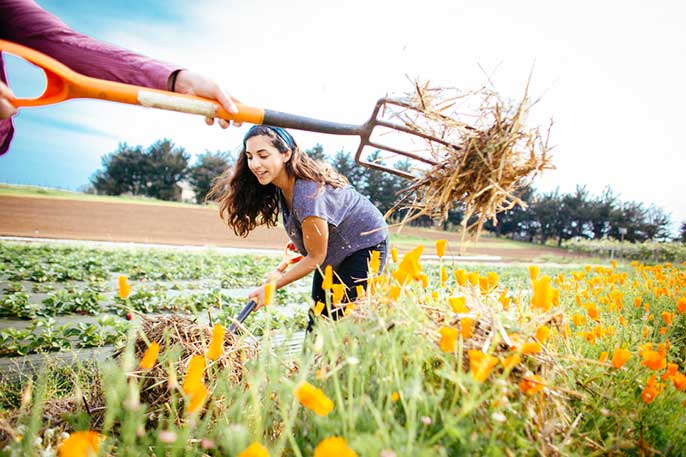UC Santa Cruz garden celebrates 50 years of cultivating farmers and a food movement
Middle age has a way of sneaking up on people and programs, so hearing now that the experiment in organic gardening that began at UC Santa Cruz in 1967 is the oldest university-based organic research and education facility in the country is, well, unexpected.
“It’s the people’s farm,” says Daniel Press, professor of environmental studies and executive director of the internationally acclaimed, hands-on learning and research programs housed at UC Santa Cruz. “What began as a student- and faculty-initiated idea to create a garden as a place for repose, renewal, and connection is, today, an incredibly well-rounded resource that exists to serve and inspire people.”
More than 1,500 apprentices have learned the art and practice of organic farming and gardening at UC Santa Cruz, making them the “signature crop.”
“If you meet an organic farmer in California, we probably trained them or someone who trained them,” says Press, only half in jest. “The central coast of California is the capital of organic agriculture in large part because of UC Santa Cruz. This university championed organic farming before anyone else, training farmers and raising public awareness about the environmental significance of growing food without synthetic chemicals. Today, the Center is broadening the definition of sustainability to encompass the well being of people as well as the environment. We need its leadership now more than ever.”
“UC Santa Cruz has been at the forefront of the food movement for decades, preparing farmers, teachers, cooks, community activists, and policymakers to help us build a healthy, sustainable food system,” says Alice Waters, owner of Chez Panisse, which planted the seeds of a flavor revolution by creating an appetite—and demand—for fresh, organic, locally grown fruits and vegetables.
Read full article about the history and continuing impact of the garden.
Watch a short video about how one man’s vision drove the creation of the garden.



